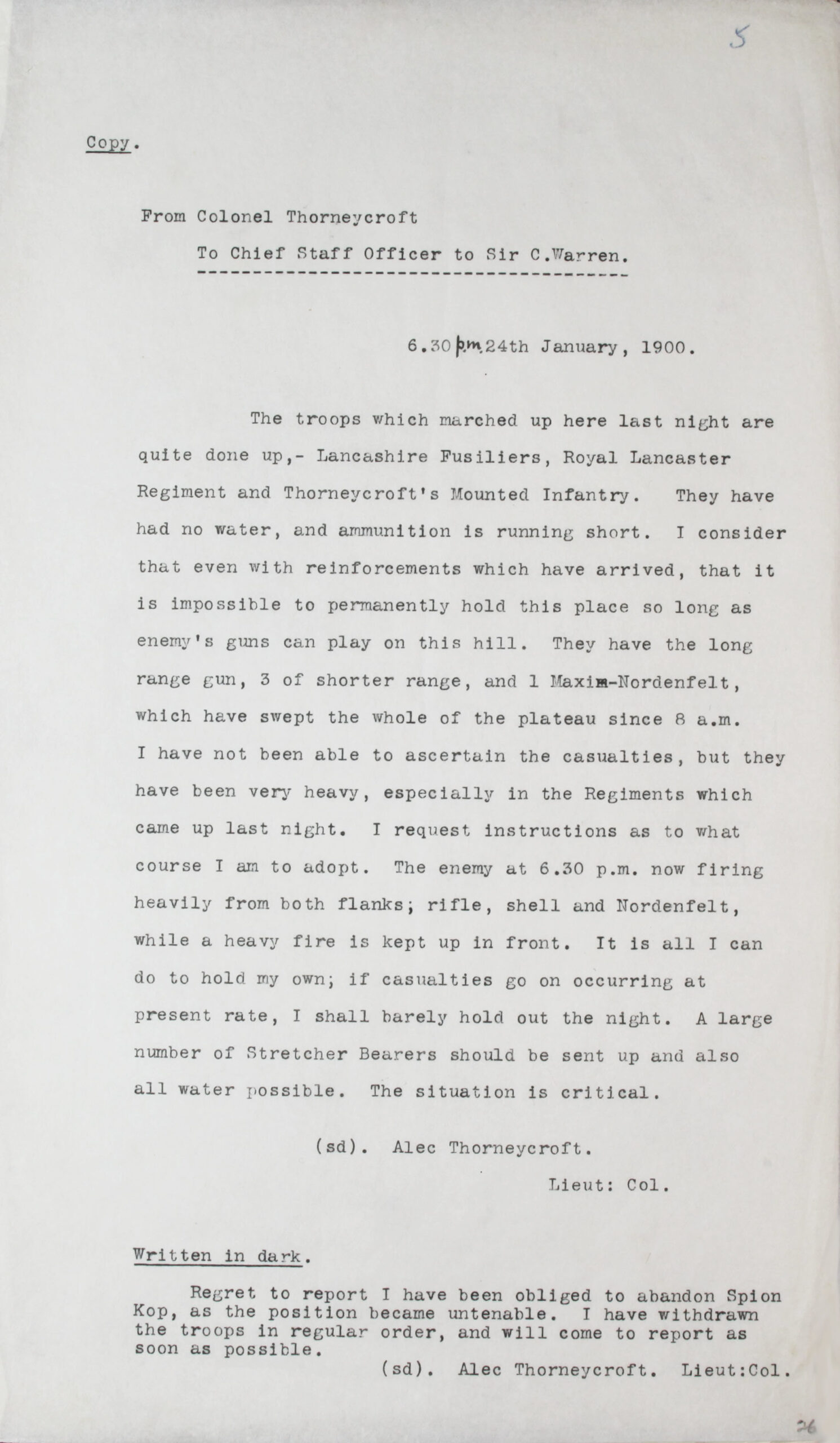
From Colonel Thorneycroft
To Chief of Staff Officer to Sir C. Warren
6.30pm, 24th January, 1900.
The troops which marched up here last night are quite done up, – Lancashire Fusiliers, Royal Lancaster Regiment and Thorneycroft’s Mounted Infantry. They have had no water, and ammunition is running short. I consider that even with reinforcements which have arrived, that it is impossible to permanently hold this place so long as enemy’s guns can play on this hill. They have the long range gun, 3 of shorter range, and 1 Maxim-Nordenfelt [machine-gun], which have swept the whole of the plateau since 8am.
I have not been able to ascertain the casualties, but they have been very heavy, especially in the Regiments which came up last night. I request instructions as to what course I am to adopt. The enemy at 6.30pm now firing heavily from both flanks; rifle, shell and Nordenfelt, while heave fire is kept up in front. It is all I can do to hold my own; if casualties go on occurring at present rate, I shall barely hold out the night. A large number of Stretcher Bearers should be sent up and also all water possible. The situation is critical.
(signed) Alec Thorneycroft.
Lieut: Col.
Written in dark
Regret to report I have been obliged to abandon Spion Kop, as the position became untenable. I have withdrawn the troops on regular order, and will come to report as soon as possible.
(signed). Alec Thorneycroft. Lieut: Col.
Look at Source 2a.
A letter from Colonel Alexander Thorneycroft, who led the first British attack at the Battle of Spion Kop on 23-24 January 1900. The British were also defeated here with many casualties, Catalogue ref: WO 105/5
- What does Thorneycroft’s letter reveal about the conditions soldiers experienced during battle?
- What does the letter infer about British chance of success?
- Can you use 4 words to describe the tone of the letter?
- What does the letter tell us about the outcome of the battle?
